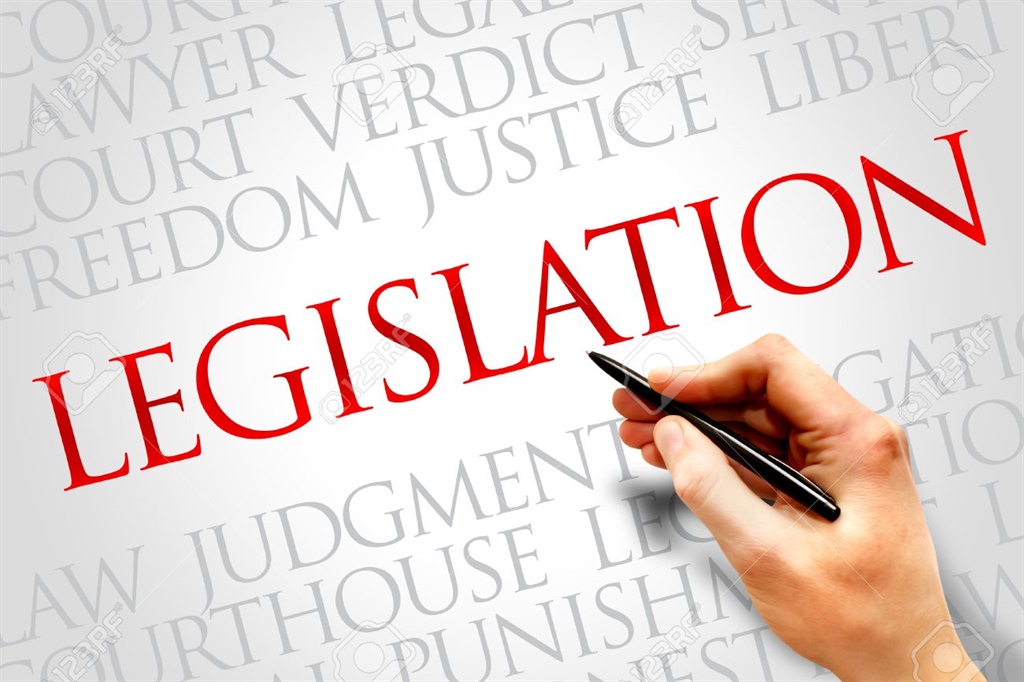
Only President Cyril Ramaphosa can save the South African publishing industry from the disaster that the Copyright Amendment Bill could cause.
The legislation, which copyright expert Owen Dean has called “an abomination”, was approved last week by the national council of provinces and will become law as soon as it is signed by Ramaphosa.
But the publishing industry and others who could be affected by the law won’t rest on their laurels if the president does sign the bill into law.
The Coalition for Effective Copyright in SA, which includes nine industry organisations, is preparing to challenge the bill in the Constitutional Court if Ramaphosa ignores the petition they sent him.
The coalition represents, among others, film makers, publishers of written works and music, film and video producers, writers and other artists.
Dean, emeritus professor of law at the University of Stellenbosch and consultant for the law firm Spoor & Fisher, said the bill was a step backwards and publishers would battle to survive if it was passed.
Read: Click, copy, paste: Is our proposed copyright bill futureproof?
According to Dean, the bill could lead to a situation in which writers and publishers stopped producing new textbooks and academic works because people might simply photocopy them without any compensation being paid to the creators.
In the short term it could make studying more affordable, but in the long term it would be a disaster. You can’t legislate for the short term, said Dean.
Other creative industries, such as the film and music industry, would also be negatively affected by the act, he said.
The existing legislation, which is based on English law, protects copyright but makes provision for “fair use” in certain limited cases.
But the amendment was based on US law and it had many exceptions to copyright protection and conferred a broad discretion on courts in determining what constituted fair use. Making copies for academic purposes was expressly excluded from copyright protection.
According to a study conducted by PwC on the instruction of the Publishers Association of SA, about 76% of the industry’s total income came from learning material.
If the bill was passed, the industry could lose as much as R2.1 billion a year. That was 33% of its annual income, PwC found. As many as 1 250 full-time employment opportunities – about 30% of the industry workforce – could be lost.
PwC warned that authors of textbooks and academic works could lose about 25% of their income.
This lower income could lead to writers and publishers simply withdrawing from the market. This would mean the country would become reliant on imported material, which did not reflect unique local circumstances.
Peter Wasserfall, head of legal services at the South African arm of the Pearson education group, which produces school textbooks and academic books for universities, said the group was deeply concerned.
He said that unlike its American counterpart, the South African bill did not make provision for compensation for damages in circumstances when copyright was infringed.
This could lead to the works of authors being made available without recognition or compensation – and without them being able to do anything about it.
Under the current legislation, ultimatums and threats of civil litigation usually meant that most copyright infringement cases were settled.
However, litigation is expensive and if the bill was passed, it could become even more difficult for authors and publishers to enforce copyright, he said.
Wasserfall said Pearson had participated in the PwC study and supported its findings.
If the bill was passed, the industry would have to begin thinking differently about the development of educational material and the way in which people could be compensated for it.
Janine Hollesen, a director at Werksmans Attorneys, said the proposed amendment would bring a lot of uncertainty, while the present act was adequate for educational works.
She said the purpose of legislation that dealt with intellectual property, such as copyright, was to protect those who created it.
Copyright legislation had to strike a balance between the benefits that creators received and the access the public had to it. “If copyright is not properly protected, there will be no incentive for the creation of such works,” she said.




 Publications
Publications
 Partners
Partners








